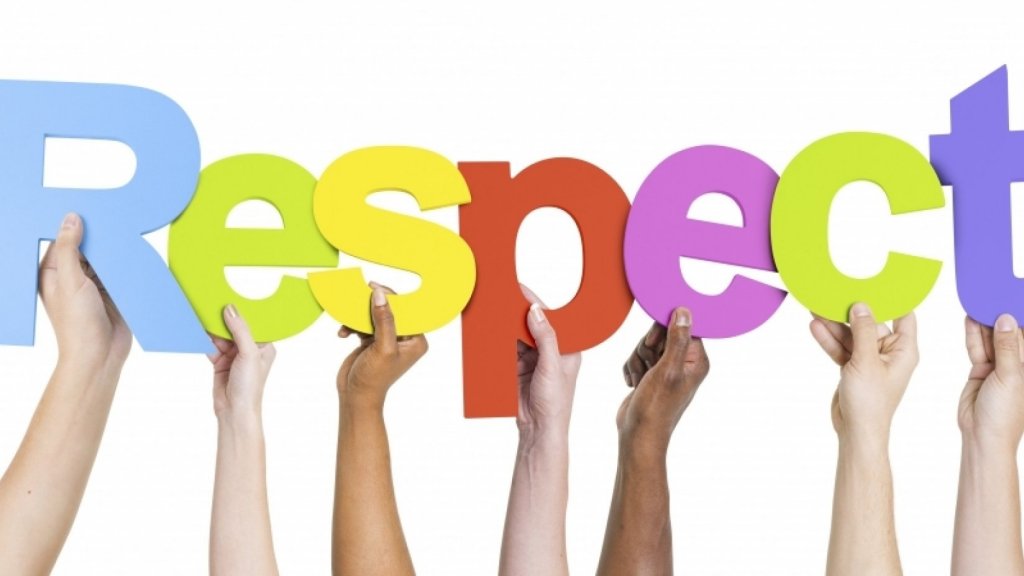
Aretha Franklin, the Queen of Soul, has passed. Her 60 year legacy of chart toppers includes anthems that unite and empower.
At a time when diplomacy is internationally managed on Twitter and civility seems to be declining, the word that she contagiously lead us to sing, and even shout in collective harmony, R-E-S-P-E-C-T, is on every employee’s mind.
Inspired by Otis Redding’s song and especially Ms. Franklin’s goose bump giving voice, here is an “encore” blog post to motivate you to be the one to lead civility in your workplace in lieu of Saying a little prayer.
***
Do you ever feel like standing on top of your desk to belt out Aretha Franklin’s anthem, “Respect” to “that guy” or “that girl”? Sadly, you are not alone.Don’t be that guy or that girl, be the one.
Although you may wish you could, by respect for yourself and for your employer, you press forward on the Queen of soul’s album and instead play I say a little prayer. To the rhythm of the gospel blues you show restraint, take a deep breath, count to ten or go for a walk. In that one moment, you are making the one choice to be civil. It only takes one: one moment, one choice and one person to initiate civility.
When I conduct civility workshops, participants are always surprised to hear about the costs of the little niggles of the contemporary workplace. Eighty percent of employees admit to losing time worrying about uncivil behaviors in their office, clinic, firm or organization. Time is money.
Workplace incivility is not bullying. It is often the result of that guy, or that girl’s, one bad day and their individual one choice to not care or not listen. It could be as simple as not using the magic words: “please,” “thank you,” “hello” or “I’m sorry.” It may be as distracting as when one constantly checks one’s PDA (Personal Digital Assistant) for emails or texting during a presentation. It can also be as frustrating as when one takes credit for someone else’s idea or passes blame for one’s mistake. It is as subtle as a sigh, a roll of the eyes and withholding information. And it can be as damaging as the scars of a demeaning or derogatory remark.
There are also times when it affects more than one person, like when a meeting leader has to repeat the entire introduction and agenda because of a latecomer who also does not have his work ready, again. Sometimes, it is not even work related, but it impacts workplace harmony. It is the mess is left in the kitchen and the empty printer because the last user did not refill the paper or toner.
Sounds familiar? These inconsequential acts, that are generally without intent to harm, often occur in private. The offender is usually not aware of the impact of his wrongdoing. Sufferers may be embarrassed or shy. They don’t report it or don’t bother to tell the offender.
Left unacknowledged incivility can be contagious and can escalate to create a vicious cycle.
I believe in the power of one, you. I am not saying that you be the one to walk around with a civility badge, pad and pen, ready to hand out incivility tickets to whoever lacks respect, restraint or responsibility. I am simply stating that your own actions have an impact in civility at work. Easier said than done, you may think. Allow me to enlighten you. When you become aware of others, you can respect them along with their values, their things and their time. Aware, you can restrain yourself from possibly hurting. Aware you can take responsibility for your actions.
Civility is contagious. Others will observe, notice and even imitate your actions. I believe in the power of one, you. You have the power to inspire others to contribute to civility.
Choose to contribute to civility; one action at a time. Manage your relationships with good intentions, actions and emotions. Do good and feel good.
If no one acknowledges workplace incivility, it cannot be corrected. Observe, take a close outsider’s empathetic look at what you do. Take responsibility; one day, one choice, one action, one magic word at a time.
Even the most considerate of employees can have a blind spot, so ask a trusted colleague if you have little annoying habits that could be irritating.
Common courtesy seems so simple, but as you may have experienced, common courtesy is not common sense.
Civility starts with respect, self-respect. You accept yourself, just the way you are. You like you, without comparing. This translates into confident behaviour. Accept; value others and their contributions in the same manner.
Respecting does not mean tolerating, especially in the presence of uncivil conduct that affects productivity. Don’t point fingers at that guy or that girl. Express your needs, in a firm but calm voice. You know the one. The voice that is non-judgmental, sensible and sensitive. That voice echoes restraint from anger and takes responsibility for consequences.
“I need to focus on this report and I am having a hard time concentrating. I would really appreciate it, if you guys could be so kind as to please move to the staff cafeteria so I can get back to my work.”
No one is belittled and relationships can continue to evolve positively without resentment.
You have heard this many times before and it is true “You cannot change others, those guys. The one person you can change is you.” Once again the power of one; it starts with you.
By its word origin, civility reminds us to be good citizens and good neighbours. Civility also applies to your work team members, and especially in your cube dwelling, where you are in such close proximity.
So, the next time that you feel like singing on top of your desk, switch the track to the Spice Girls: Stop, right now, thank you very much, be the one with the human touch. Don’t be those guys on the run. Slow it down. Be the one and maybe have some fun.
Are you in a sticky situation? This blog is at your service. Write to me at julie@julieblaiscomeau.com. Your situation may enlighten other readers.
Published September 11th, 2012 HuffPost Adapted August 17th 2018 (c) Julie Blais Comeau
